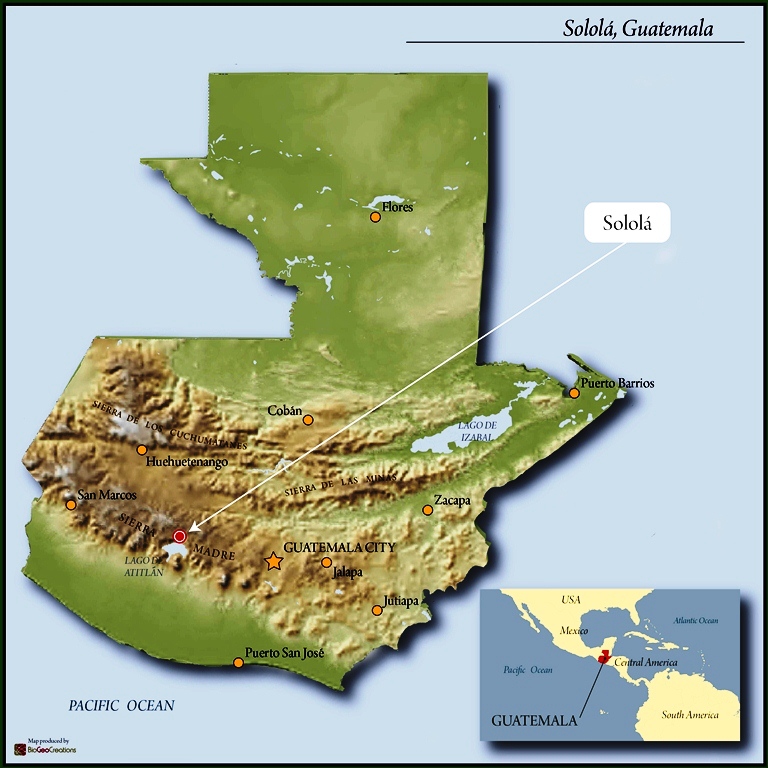GUATEMALA ORGANIC ATITLAN FINCA PATZIBIR – Lot 44 – 28359 – GrainPro Bags – SPOT CCARGO
Position Spot
Bags 0
Warehouses Madison
Flavor Profile Plum, hibiscus, almond, vanilla cake
Please Note This coffee landed more than 8 months ago.
Out of stock
About this coffee
Grower
Andres Fahsen | Finca Patzibir
Altitude
1475-1600 masl
Variety
Caturra, Catuaí, Bourbon, Typica
Soil
Volcanic loam
Region
San Lucas Tolimán, Sololá Department, Guatemala
Process
Fully washed and dried in the sun
Harvest
November - February
Certification
Organic
Coffee Background
Andres Fahsen is the 5th generation of his family to manage the 56-hectare Finca Patzibir, an organic farm on the slopes of Volcán Tolimán, one of the most prominent natural features of the breathtaking Lake Atitlán.
Patzibir sits in the municipality of San Lucas Tolimán, on the southern shore of the lake near the border between the departments of Sololá and Chimaltenango. Atitlán is considered a place of ancient importance and still home to some of Guatemala’s most visible indigenous communities. Atitlán’s surface sits at almost 1600 meters and is a volcanic basin surrounded by dramatically steep escarpments, and, including Tolimán, numerous volcanoes. Humidity along the escarpments is high throughout the year, where low-moving clouds blend into forests and filter the sunlight. As one might imagine, in the right hands the terroir here is exquisite for coffee. And a lot of coffee is grown in various communities around the lake, many of whom still successfully grow typica and bourbon, the first varieties planted in the area. However, it is rare to find coffee from single estates such as Patzibir. Most of the coffee from Atitlán is smallholder grown and either cooperatively represented or bought by independent processors at competitive local rates.
Patzibir requires some specific arrangements to succeed as an organic farm. First, the slopes are terraced and coffee is interplanted with different types of grass, which help retain moisture and nutrients in the soil that would otherwise wash away. The grass itself is also used to feed the coffee—once it’s cut the roots decompose and release their own stored nutrition to the roots of the coffee, as well as aerating the soil. The shade canopy is pruned to precision to allow optimal sunlight into the farm, and coffee trees are also generously spaced on their terraces, allowing for the minimal sunlight to photosynthesize the lowest branches, maximizing production on the whole tree. Spacing also allows air to flow through the entire tree, preventing mold and fungus from generating in Patzibir’s humid climate.
“Patzibir” is a Kaqchikel word meaning “where the Tzibir tree lives”, in reference to a native tree species in the region, which makes up part of Patzibir’s canopy.
The cherry harvested at Patzibir is processed in the city of Antigua, at the wet mill of Los Volcanes Coffee, a processor, quality consultant, and exporter from whom Royal buys a wide variety of coffees. At Los Volcanes’ wet mill, cherry is delivered daily throughout harvest where it is sorted for uniformity, depulped, and fermented for up to 48 hours in a covered, temperature-controlled warehouse of ceramic tanks. Los Volcanes employs dedicated processing managers calibrated to a combination of temperature and smell to manage precise degrees of fermentation and maintain consistency across batches of varying volumes, temperatures, and humidity levels. After fermentation is complete, parchment is passed through a pressurized water siphon for cleaning and density grading, and then dried on the site’s large patio or in mechanical dryers. As batches of parchment finish drying throughout the harvest, the Los Volcanes team works with each individual lot in their cupping lab, blind-tasting and building harmonious lots by producer or region, for international sale.




